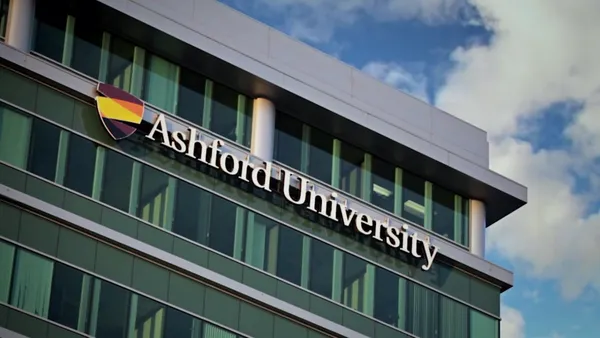Dive Brief:
- A promising high school graduate forgoes opportunities from Ivy League and large public research institutions to pursue a one-year credentialing program at MissionU, a for-profit data science online institution promising students a skill set in a competitive field in exchange for a credential and payback of a portion of earnings to the school once hired. Aidan Cary is one of the thousands of students across the country debating this choice, and was profiled in a recent Wall Street Journal feature.
- MissionU boasts Ivy League-centric acceptance rates, intensive training modules and pipeline opportunities with leading tech companies, an alluring portfolio that attracted more than 10,000 applications for 50 slots since launching last fall.
- The school is similar to models piloted by other for-profit education companies like Praxis, which allows students to amass skill in digital and traditional communications over six months before helping to placed them with reputable start-up firms. “The degree is dead. You need experience,” Praxis' website boasts in part of its marketing pitch for its $11,000 certification program.
Dive Insight:
There is merit to the idea that companies prefer experience over credentials, but when it comes to sifting out competitors for a single position, education can be the single greatest hook for an employer seeking to distinguish between two qualified candidates.
Most companies know that colleges and universities have not yet become fully integrated into workforce development and that most leaders still believe a college education to be a source of inspiration and self-discovery. But the more industry move to a technologically-based foundation, and the need for critical thinkers and solid communicators grows, it is clear that the traditional model of college education must be adapted to fit the needs of corporations and industrial players.
Colleges can serve as an easy identifier for employers who are looking for interns and entry-level workers most likely to have experience with the work they will be doing as graduates based upon geography, the rigor of the college they attended, and through perceived levels of affluence and intelligence which lands students on certain campuses.
But even this model is being changed dramatically; community colleges are the new destination of choice for many high-capacity students, and institutions serving mostly Pell Grant recipients are continuing to make inroads in fields like computer science and healthcare.













